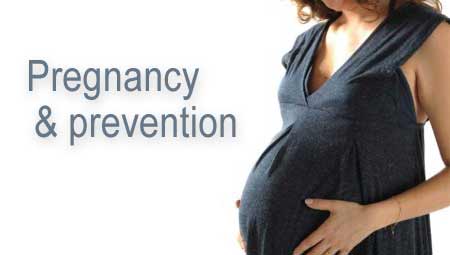Infections during pregnancy
Are you pregnant or planning a pregnancy?
There are simple steps you can take to protect your fetus or newborn from infections that cause serious health problems.
Cytomegalovirus (CMV)
A pregnant woman infected with CMV can pass the virus to her baby during pregnancy. Most babies born with CMV infection will be fine and will not have symptoms or develop health problems.
CMV is passed from infected people to others through body fluids, such as saliva, urine, blood, vaginal secretions, and semen. Infants and young children are more likely to shed CMV in their saliva and urine than older children and adults. For pregnant women, the two most common ways they are exposed to CMV is through contact with saliva and urine of children with CMV infection and sexual activity.
Regular hand washing, particularly after changing diapers, is a commonly recommended step to decrease the spread of infections and may reduce exposures to CMV.
Group B Strep
If you are pregnant—or know anyone who is—you need to know about group B strep. About 1 in 4 women in the United States carry the bacteria that cause group B strep infection. Babies can get very sick and even die if their mothers pass group B strep bacteria to them during childbirth.
If you are pregnant, talk to your doctor or midwife about getting tested for group B strep. If you test positive you will get an antibiotic during labor to prevent the bacteria from spreading to your baby. It’s important to get tested for group B strep during each pregnancy.
Listeriosis
Listeriosis is a rare but serious infection caused by eating food contaminated with bacteria called Listeria. Listeriosis mostly affects pregnant women, newborns, older adults, and people with weakened immune systems. Pregnant women are 10 times more likely than other people to get listeriosis. About 1 in 6 cases of listeriosis are associated with pregnancy.
Zika
Zika virus can be passed from a pregnant woman to her developing baby during pregnancy or around the time of birth. Zika virus infection during pregnancy is a cause of microcephaly and has been linked to other pregnancy problems and serious birth defects, including miscarriage, stillbirth, eye defects, hearing loss, and impaired growth. Zika is primarily spread through the bite of an infected Aedes aegypti or Aedes albopictus mosquito. However, Zika can also be spread during sex by a person infected with Zika to his or her sex partners.
Read the complete information here: https://www.cdc.gov/features/prenatalinfections/index.html

